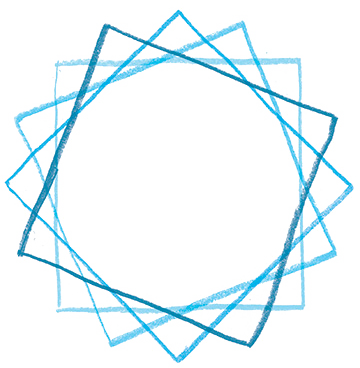
“The child who loves to learn, lives to learn.”
A genuine philosophy of education is essentially a philosophy of life; living and learning are interdependent conditions.
Since human beings learn through exploration, interpretation of, and reaction to their world, then an appropriate educational approach encourages fearless exploration, challenge and exchange of ideas.
Children who are expected to participate in a democratic society must be educated in schools that allow the greater possible experience in making rational choices among a variety of alternatives, that also allow the widest possible experience in free interaction with others and in following their own lines of inquiry or investigation.
This will not be a silent school. A school where children are learning is a place full of the sound of laughter, of tears, of gaiety, of anger…the sound of children communicating…the sound of life…the sound of growing.
The Randolph School Story, 1963
“Learning and teaching should not stand on opposite banks and just watch the river flow by; instead, they should embark together on a journey down the water. Through an active, reciprocal exchange, teaching can strengthen learning and how to learn.”
Loris Malaguzzi, The Hundred Languages of Children
Where we come from:
In 1963, three teachers at Poughkeepsie Day School met to discuss a shared dream & vision involving:
The ideal, child-centered educational environment, dedicated to promoting the greatest possible self-fulfillment of every child
The creative investigation of the world, employing the natural curiosity of children.
This was an important time in the history of our country and our community. When the immediate present for grown-ups was uncertain and at times scary, some friends and neighbors turned to music like our old friend, Pete and his pals at the Sloop Club, others like our founders and first families turned to their children, as an investment in a brighter future.
Around this time, author, scientist, educator and activist, Rachel Carson asked that as a “gift to each child in the world be a sense of wonder so indestructible that it would last throughout life, as an unfailing antidote against the boredom and disenchantments of later years, the sterile preoccupation with things that are artificial, the alienation from the sources of our strength.”
The Founders of the Randolph School: Lee Tomlins, Dee Rittenhouse & Jerry Pomeroy, along with the its founding teachers and first families, felt that same call to action, and established this school as a “gift” to future generations. And many have carried that torch since.
Rachel Carson continues: “If a child is to keep alive his inborn sense of wonder, he needs the companionship of at least one adult who can share it, rediscovering with him the joy, excitement and mystery of the world we live in.”
The Sense of Wonder (1964) from her 1956 article “Help Your Child to Wonder”
We’re proud to be those companions today for every child, privileged to experience Randolph’s magic every day, and honored to keep this torch burning for generations yet to come.
Our Philosophy:
Education at Randolph School is based in experience. Through hands-on, collaborative, and interdisciplinary explorations and studies, children make connections with each other and with the world around them. We believe in educating the whole child - the social-emotional, intellectual, physical and artistic development of a child is all interconnected. The learning environment and activities are thoughtfully designed so that children can make choices and construct their own understandings. Teachers plan educational experiences based on their knowledge of each child as well as on developmental and age-appropriate curricula. Whether we are cooking, building with blocks, researching an answer to our many questions, taking a field trip, writing a book, hiking to the stream, or painting a mural, at Randolph School each child is nurtured as a capable and unique individual in the process of becoming a lifelong learner. It is by doing that children learn how to learn.
At many schools, the youngest children learn by exploring and experimenting. At Randolph, all of our students engage in this meaningful kind of learning. We provide each child with the guidance, support, and challenge they need to make their own meaning. We also offer them time. At Randolph, we may choose fewer topics of study than in other schools, but we intentionally organize and develop each integrated study so that children can gain deep understandings of big ideas, as well as the knowledge and skills they are ready for at each moment of their development. A project or unit that may take a few weeks in a more traditional school can last for a few months or even weave throughout the year at Randolph School. Children's own interests and experiences influence how a curricular exploration emerges and evolves. Their questions and passions matter here.
For more information about our school, please email us at office@randolphschool.org.




